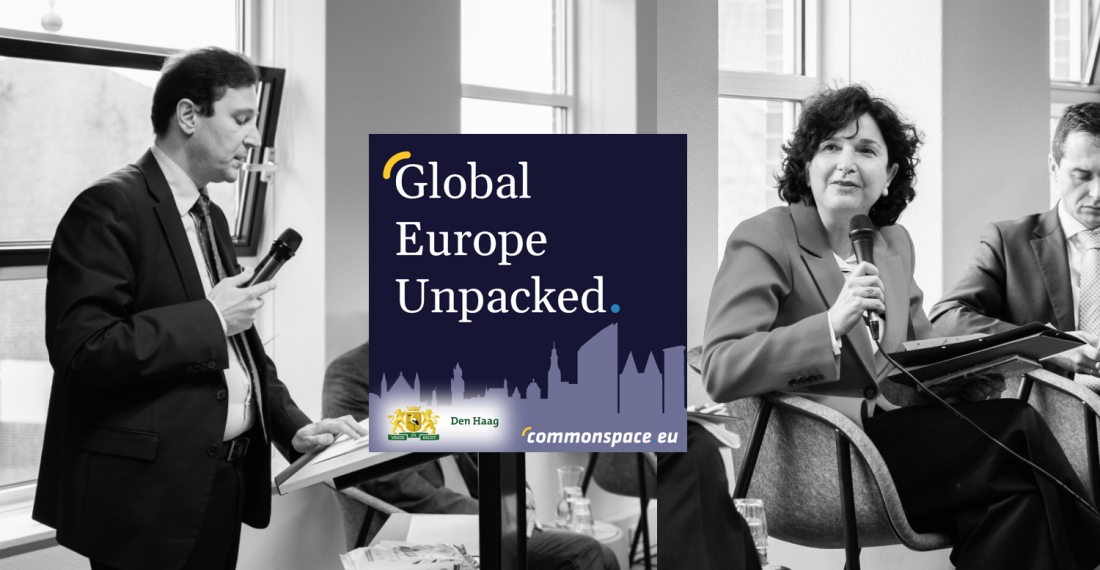“Governments have to take into account that they have to talk to the public. They have to keep the people involved in this process with their different ideas and opinions, even when this is difficult, even when challenges come from the left and from the right.” – Professor Antoaneta Dimitrova
[The podcast is also available on all of the usual channels, including Apple Podcasts, Spotify and Google Podcasts]
In series two of Global Europe Unpacked, commonspace.eu is collaborating with the City of The Hague to bring you several conversations looking at the future of Europe in the world. This series runs alongside the EU’s largest citizen consultation to date, the Conference on the Future of Europe. Our objective is to spark your interest in some of the important issues under discussion and encourage you to get involved.
The topic of European Union enlargement encapsulates more than any other topic the interaction between the processes going on inside the European Union with those outside of it. It is discussed often in response to questions that go to the heart of the European project: Should the EU be considering new members, or should it consolidate first? What makes a country European? The question, ‘where does Europe end?’, has been asked repeatedly over the last three decades but never properly answered. For a long time, expansion was the central foreign policy tool for the EU but now some in the bloc are very much against it.
In this episode, Will Murray starts with a conversation he conducted with the Ambassador of Georgia to the Netherlands, His Excellency David Solomonia about why his country is set on joining the European Union, why it should be allowed to, and why Georgia, Ukraine and Moldova – or the “Associated Trio” – signed an agreement with each other last year to co-operate on building a closer relationship with the EU.
We then bring you an academic perspective of the different considerations associated with EU enlargement from Professor Antoaneta Dimitrova – a Professor of Comparative Governance at Leiden University.
Amongst other things, this episode discusses:
- Why Georgia, as an aspiring member, wants to join the EU and why, from the Georgian perspective, it should be welcomed;
- What the Associated Trio – Georgia, Moldova, and Ukraine – is and why it formed;
- How the EU has historically responded to those that wished to join the bloc;
- The general reasons given for and against EU enlargement;
- What lessons previous rounds of EU enlargement have shown us about best practices;
- Whether we should allow candidates to join the EU faster for geopolitical reasons; and
- What considerations the EU member states themselves should have when it comes to EU enlargement.
It should be noted that these conversations were recorded before Russia's invasion of Ukraine on 24 February 2022.






